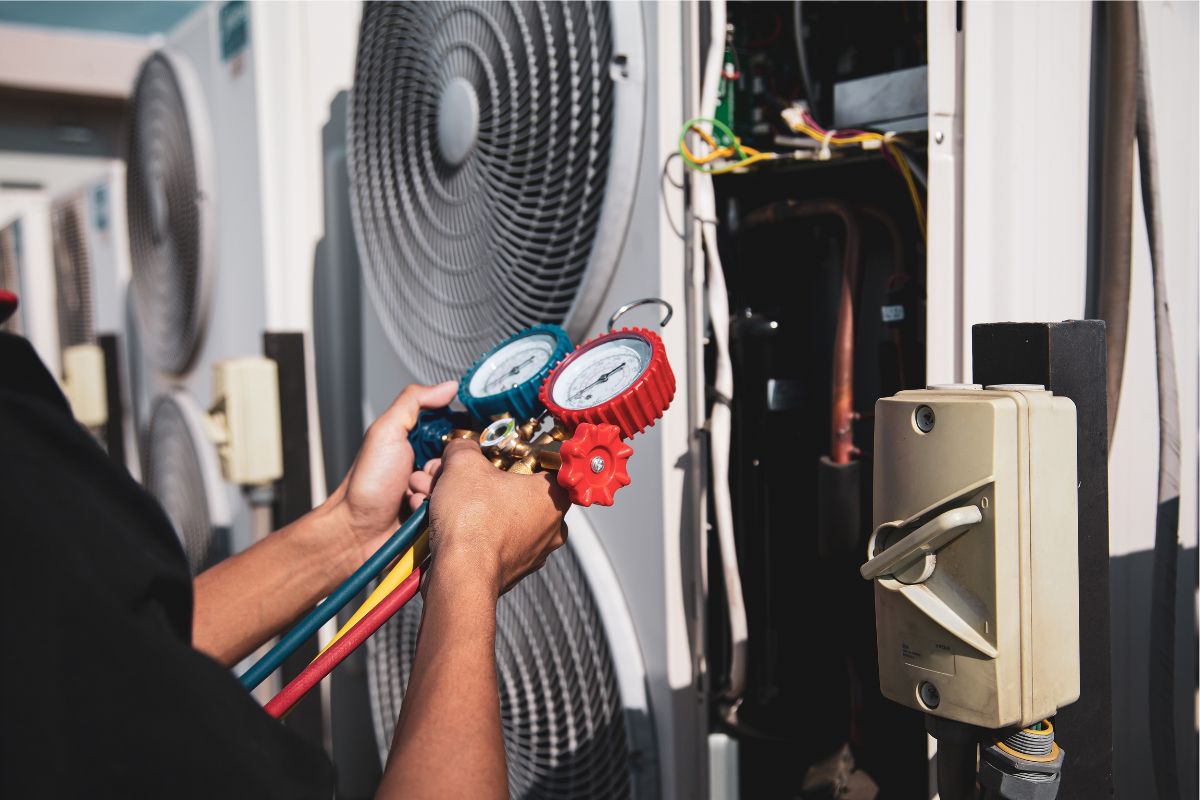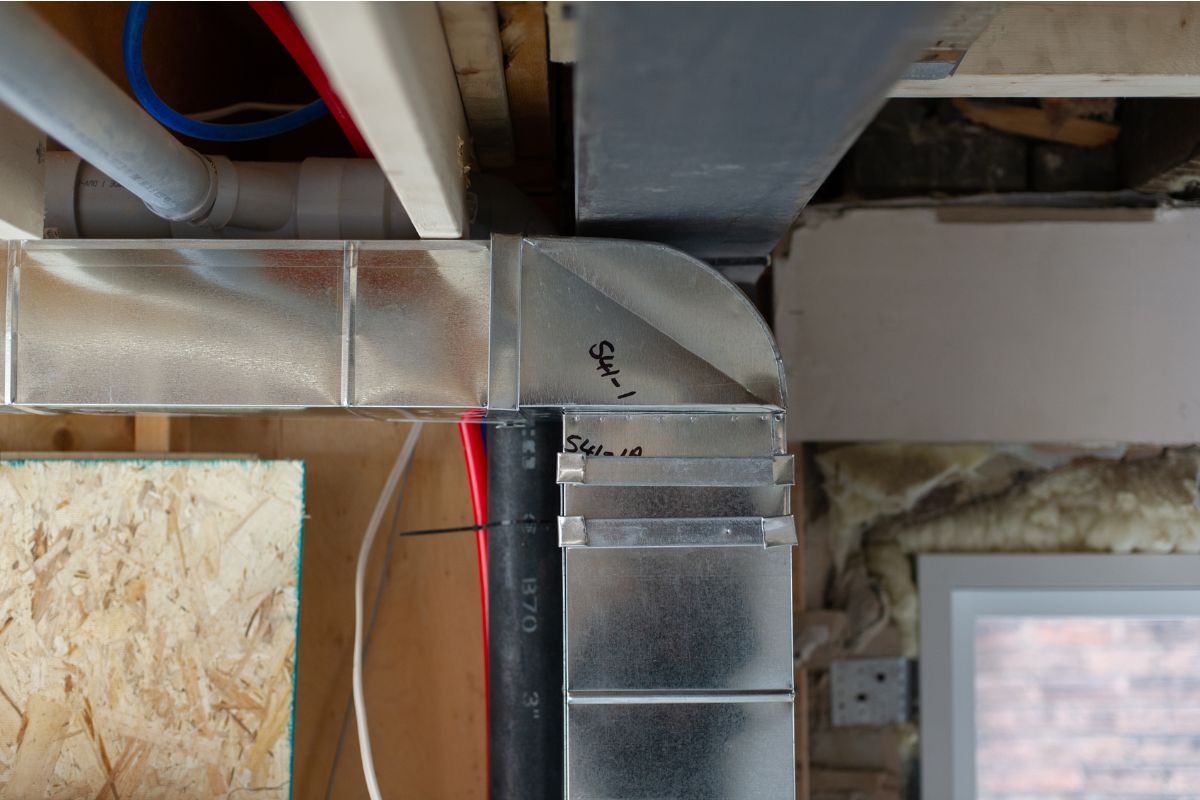Choosing the right air filter for your home can be a difficult decision, but understanding MERV ratings is essential for proper care and maintenance of your HVAC system. MERV stands for Minimum Efficiency Reporting Value, which is the standardized way to measure how effective an air filter is at trapping particles from the air in order to improve indoor air quality. It’s important to know that not all filters are created equal; the higher a filter’s MERV rating, the more efficient it will be at removing airborne contaminants. Indeed, there are many factors involved when you’re looking for optimal efficiency and performance.
This blog post aims to outline what these factors are and why they should be taken into consideration when shopping for new filters or replacing old ones. Knowing this information can help keep your interior clean and reduce potential health risks caused by lower-quality particles swirling around inside our living and working spaces.
What are MERV ratings and how does it affect your indoor air quality
MERV ratings are a crucial factor to consider when seeking ways to improve your indoor air quality. Established by the American Society of Heating, Refrigerating, and Air-Conditioning Engineers (ASHRAE), MERV ratings serve as an industry-standard measurement that indicates the efficiency and effectiveness of air filters in removing particulate pollutants from the air.
The rating scale ranges from 1 to 20, with higher numbers representing superior filtration capabilities. Choosing an air filter with an appropriate MERV rating for your specific needs can significantly reduce contaminants such as dust, pollen, pet dander, and even bacteria, leading to a healthier and more comfortable indoor environment. By understanding MERV ratings, you can make well-informed decisions about air filtration solutions, ensuring the best possible quality of air for you, your family, and your coworkers.
Different types of air filters and their respective MERV ratings
Air filters play a crucial role in maintaining the quality of indoor air, protecting the occupants from harmful pollutants and allergens. Filters with lower MERV ratings, such as 1-4, are typically used in residential settings as they provide basic filtration of dust and pollen particles.
However, for commercial applications and buildings with higher air quality demands, filters with MERV ratings between 5-12 are more suitable as these remove smaller contaminants like mold spores, pet dander, and even some bacterial particles.
In highly sensitive environments, such as hospitals and laboratories, air filtration systems with MERV ratings of 13-20 are employed to ensure the removal of even the tiniest airborne particles, including viruses and fine dust. Understanding the different types of air filters and their respective MERV ratings is essential in selecting the appropriate filtration system to effectively maintain indoor air quality and promote a healthy environment.
The benefits of having an air filter with a high MERV rating
MERV ratings are a key factor to consider when determining the best air filter. A MERV rating of 13 or higher is particularly beneficial because it can help to eliminate even microscopic particles, such as those found in many viruses and allergies — making them an ideal choice for hospitals and doctor’s offices. In light of the COVID-19 pandemic, high MERV ratings are imperative in such settings.
Higher MERV-rated filters also act as deterrents against dust accumulation over time. This means that households with greater sensitivities due to allergies, asthma, and other respiratory issues should definitely consider purchasing an air filter with a high MERV rating (but generally no higher than a 13 rating).
Common mistakes made when choosing the right air filter

Selecting the appropriate air filter for your home or workplace is a significant factor in maintaining a healthy and comfortable indoor environment. However, common mistakes are often made during the filter selection process, potentially compromising air quality and energy efficiency.
One frequent error is neglecting to consider the filter’s specific purpose, which could range from allergen reduction to odor control. In addition, focusing solely on price might lead to purchasing a substandard filter, incapable of adequately filtering pollutants and allowing them to circulate in your space.
Furthermore, it is crucial to understand MERV ratings and select a rating suitable for your needs, as an improper rating could result in reduced airflow or inadequate filtration. To avoid these pitfalls, invest time in researching various filter types, their corresponding benefits, and their compatibility with your HVAC system, ensuring you make an informed decision in selecting the most effective air filter.
Tips to help you choose the perfect air filter based on its MERV rating
Selecting the perfect air filter for your residential or commercial space can be challenging, especially when considering its MERV rating. As MERV ratings depict the efficiency of an air filter in arresting airborne particles, it is crucial to strike the right balance between obtaining high indoor air quality and ensuring the compatibility of the air filter with your HVAC system.
Before purchasing an air filter, become familiar with your system’s manufacturer recommendations and examine your unique requirements, such as the presence of allergens, pets, or home construction activities. Generally, a MERV rating between 8 and 13 is sufficient to capture most common household contaminants while maintaining optimum airflow. If you are still unsure, consult a professional HVAC technician who can help determine the most appropriate MERV rating for your specific needs, taking into account factors such as energy efficiency, filter replacement frequency, and the impact on the longevity of your HVAC system.
How to ensure regular maintenance and replacement of your home air filters
Ensuring regular maintenance and replacement of your home air filters is essential to improving air quality and controlling levels of dust, pollen, and other airborne particles. To make sure you are getting the best air filter for your needs, it is important to investigate its MERV rating. This number tells you how effective the filter is at trapping particles that pass through it; higher numbers mean better filtration. When selecting an air filter, picking one with a MERV rating appropriate for your environment, lifestyle, and sensitivities will ensure better indoor air quality.
Once you’ve chosen a filter, keep an eye out for signs that it must be replaced, such as decreased airflow from heating and cooling units or the buildup of dust around vents or on the filter itself. If a filter becomes damaged or begins to look worn out beyond simple dust buildup, replacing it quickly is key to maintaining optimal air quality in your home.
MERV ratings: Which filter is right for me?
In conclusion, MERV ratings are essential when it comes to choosing the proper air filter for your home. Depending on your needs, there are a variety of filters available, each with a unique MERV rating and benefits. It’s important to consider the size of the air filter and its ability to capture airborne particles for optimal air quality.
Common mistakes often made when choosing an air filter include buying the wrong-sized filter or selecting one with too low of a MERV rating for adequate particle capture. To make sure you have the appropriate and capable air filter, be sure to factor in tips such as size requirements and heating/cooling system compatibility prior to your purchase. Regular maintenance and timely replacements of your home’s air filters will help sustain clean indoor air that can result in improved personal health and peace of mind.
Don’t forget, if you’re looking for professional HVAC services related to choosing or installing new air filters in your home, look no further! Here at Air Ideal, we provide top-tier service that you can rely on. Please visit our website for more information and get in touch with us today for assistance with all of your HVAC needs!



